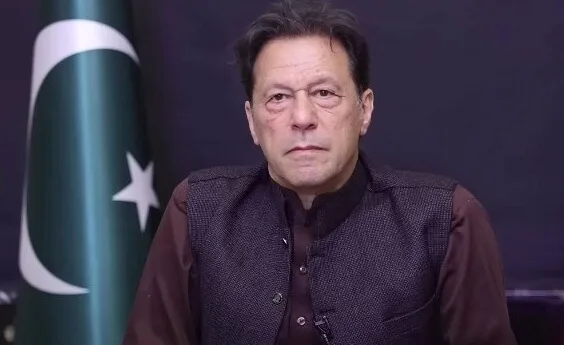In a significant ruling, Pakistan’s Supreme Court overturns previous amendments to the anti-corruption law, challenging former Prime Minister Imran Khan’s efforts to alter the legal framework
In a pivotal decision, Pakistan’s Supreme Court has reinstated key provisions of the country’s anti-corruption law, overturning recent amendments championed by former Prime Minister Imran Khan. The ruling represents a significant setback for Khan, whose efforts to reform the anti-corruption framework have been a central aspect of his political agenda.
The Supreme Court’s decision, announced today, reverses changes that had been made to the anti-corruption legislation earlier this year. These amendments, implemented during Khan’s tenure, aimed to streamline the process for prosecuting corruption cases and reduce the powers of investigative agencies.
Embed from Getty ImagesThe court’s ruling comes after a prolonged legal battle involving various stakeholders, including opposition parties and civil society groups, who argued that Khan’s amendments undermined the effectiveness of anti-corruption measures and favoured political interests over transparency and accountability.
The Supreme Court’s decision restores the previous legal framework, which is seen as more robust in combating corruption. This includes provisions that grant broader investigative powers to agencies and impose stricter penalties for corruption-related offences.
The ruling has been met with mixed reactions. Supporters of Khan, who served as Pakistan’s Prime Minister from 2018 to 2022, view the decision as a political manoeuvre aimed at undermining his legacy. Conversely, critics argue that the reinstated law will strengthen the fight against corruption by ensuring that the legal system remains impartial and effective.
Imran Khan, who is currently embroiled in various legal and political challenges, has criticized the Supreme Court’s decision. In a statement, Khan accused the judiciary of acting in favour of entrenched political elites and vowed to challenge the ruling. He argued that the amendments were necessary to address inefficiencies in the previous anti-corruption framework and to reduce the influence of corrupt practices within government institutions.
The decision has significant implications for Pakistan’s political landscape. As Khan faces mounting challenges, including ongoing legal cases and political opposition, the restoration of the anti-corruption law may influence public perception and impact the broader political environment.
In the wake of the ruling, calls for political stability and transparent governance have intensified. Analysts suggest that the decision could further polarize Pakistan’s political scene, with potential repercussions for upcoming elections and future governance strategies.
Analysis:
Political: The Supreme Court’s restoration of the anti-corruption law is a blow to Imran Khan’s political agenda, undermining his efforts to reshape the legal framework to his advantage. This decision reflects ongoing tensions between the judiciary and political figures in Pakistan, highlighting the challenges faced by Khan and his supporters in navigating the country’s complex political landscape. The ruling may impact Khan’s ability to mobilize support and influence public opinion, especially as he continues to face legal and political hurdles.
Social: The reinstatement of the anti-corruption law resonates with broader societal concerns about corruption and governance in Pakistan. The decision reflects public demands for greater transparency and accountability within government institutions. For many citizens, the ruling represents a step toward more effective measures against corruption, reinforcing the need for a legal system that upholds integrity and fairness. The ongoing debate about the effectiveness of anti-corruption policies reflects societal aspirations for a more just and accountable political system.
Racial: Although the ruling itself does not directly address racial issues, it highlights underlying tensions related to political representation and governance. In a diverse country like Pakistan, perceptions of fairness and justice in legal and political processes can intersect with broader ethnic and regional dynamics. The decision may influence how different communities view the government’s commitment to addressing corruption and ensuring equitable treatment under the law.
Gender: The decision’s impact on gender issues is indirect but relevant. Effective anti-corruption measures can influence women’s empowerment by promoting transparency and reducing barriers to equal participation in political and economic spheres. The restoration of the previous legal framework may contribute to creating a more equitable environment for women, by ensuring that corruption does not disproportionately affect their opportunities and rights.
Economic: The reversal of Khan’s amendments to the anti-corruption law could have significant economic implications for Pakistan. Strengthening anti-corruption measures may enhance investor confidence and improve the business environment by reducing the risk of corrupt practices. Conversely, political instability and ongoing legal battles may deter investment and hinder economic growth. The ruling may impact economic policies and investor perceptions, influencing Pakistan’s overall economic stability and development prospects.
